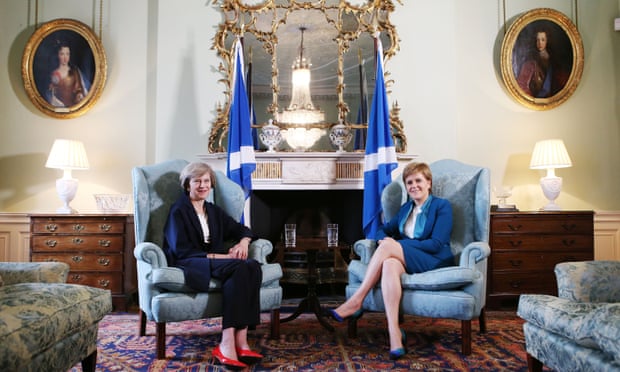Foundation for Fiscal Studies discovers national financing recipe proposed by government could abandon some with additional cuts of 7%
Understudies in classroom
The legislature has confronted feedback over the proposed changes, particularly from Conservative backbenchers. Photo: Alamy
See all the more sharing choices
Offers
54
Remarks
151
Sally Weale Education reporter
Wednesday 22 March 2017 00.01 GMT Last adjusted on Wednesday 22 March 2017 11.56 GMT
The administration's arrangements for school financing could leave numerous foundations in England confronting profound cuts well into the following decade, a research organization has cautioned.
As per research by the Institute for Fiscal Studies (IFS), the proposed national subsidizing equation could leave 1,000 schools crosswise over England confronting extra cuts of 7% past 2019–20 keeping in mind the end goal to align them with the new financing levels.
Under the recommendations, the administration has shielded as of now all around financed schools from a sudden, sensational fall in wage by guaranteeing that none lose over 3% of their financial plan up to 2020 as a major aspect of the administration's redistribution of assets.
Mystery Teacher: My school considers students to be a subsidizing recipe – we're falling flat them
Perused more
Past that, nonetheless, the IFS says there is "significant vulnerability". The administration has given no direction about what will occur after 2019/20, undermining the limit of schools to settle on long haul arranging choices.
As indicated by the IFS explore, distributed on Wednesday, just around 60% of schools will be on the principle recipe by 2019–20 in light of the transitional securities set up for the initial two years.
The IFS ascertains that 5% of schools – 1,000 altogether – would in any case be over 7% over the financing level managed by the principle equation and could consequently expect cuts of that extent sooner or later after 2020.
"The legislature has given no sign of how these schools will move to the new equation after 2019/20," the report states.
"This is of fundamental significance to schools settling on long haul arranging choices, particularly those schools that may confront extended cuts."
Training secretary Justine Greening is confronting across the board restriction to her arranged subsidizing changes, especially from Conservative backbenchers who had planned to see schools in their voting public pick up significantly more from the changes and have been campaigning broadly.
Future schools: center subjects just, guardians pay for the rest
Laura McInerney
Laura McInerney Read more
Guardians in London – whose kids' schools remain to lose most from the subsidizing change – and somewhere else the nation over have additionally mounted a battle against the new equation.
Their worries are exacerbated by the way that school spending plans are as of now under serious weight, with a genuine terms fall in school spending per understudy of around 6.5% up to 2019/20, as indicated by the IFS.
Chris Belfield, co-creator of the report stated: "To some degree unavoidably, this change makes victor and washouts, and it comes during an era of serious weight on school spending plans, as we are as of now in the most secure four-year time frame for per-understudy spending in English schools since at any rate the mid 1980s.
"The legislature has set up transitional securities to help smooth the move procedure up to 2019–20. Be that as it may, there is noteworthy vulnerability about what will occur after 2019–20.
"This is a major exclusion, considering just 60% of schools will be on the fundamental recipe in 2019–20. The recipe could suggest around 1,000 schools would confront a further 7% slice to their financial plans in the following parliament."
Battling "injustice" is no support for this school financing disfavor
Deborah Orr
Deborah Orr Read more
The administration's counsel on the changes closes on Wednesday 22 March, after which authorities are relied upon to audit the commitments, then consider conceivable changes.
In the end hours of the counsel, instructors' pioneers by and by called for all the more financing in schools.
An announcement from the Department for Education said the IFS wasn't right to state there had been no affirmations after 2020 and guaranteed the financing floor would shield any school from losing over 3% for each student general for the lifetime of the recipe. It went on be that as it may: "Actually we can't pre-empt the choices that future governments may take to survey the recipe."
Promotion
A DfE representative called attention to that the IFS report additionally respected the administration's dedication to more attractive subsidizing, including: "We will end the noteworthy post code lottery in school financing and under the proposed national schools financing equation, the greater part of England's schools will get a money support.
"We perceive that schools are confronting fetched weights, which is the reason we will keep on providing backing to help them utilize their subsidizing in financially savvy ways, including enhancing the way they purchase merchandise and enterprises."
Dr Mary Bousted, general secretary of the Association of Teachers and Lecturers, stated: "Adequately subsidized, the national financing equation can possibly target cash where it is most required and also tending to notable inconsistencies.
"To make this recipe a win, the Department for Education should critically secure all the more financing from the Treasury.
"Inability to do as such will prevent an era from securing youngsters the quality training they are qualified for and guardians properly anticipate."
This article was changed on 22 March 2017 to include a remark from the Department for Education that was gotten after production
Since you're here …
… we have a little support to inquire. More individuals are perusing the Guardian than any time in recent memory, however far less are paying for it. Promoting incomes over the media are falling quick. What's more, not at all like numerous news associations, we haven't set up a paywall – we need to keep our news-casting as open as possible. So you can perceive any reason why we have to request your offer assistance. The Guardian's autonomous, investigative reporting takes a great deal of time, cash and diligent work to deliver. Be that as it may, we do it since we trust our point of view matters – on the grounds that it may well be your viewpoint, as well.
On the off chance that everybody who peruses our detailing, who likes it, bolsters it, our future would be significantly more secure.




ConversionConversion EmoticonEmoticon
Note: Only a member of this blog may post a comment.